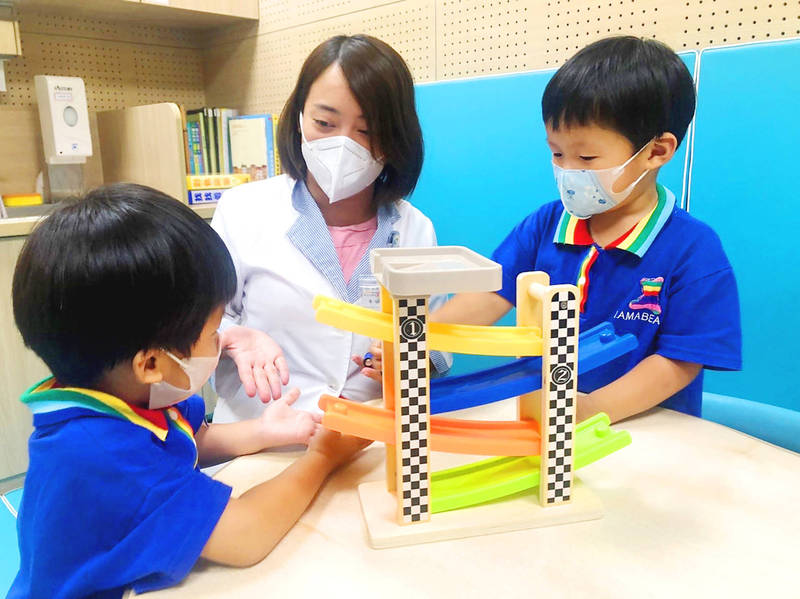《TAIPEI TIMES》 Devices said to slow speech learning

A woman interacts with children in an undated photograph. Photo courtesy of the New Taipei City Tucheng Hospital
By Chiu Shu-yu and Kayleigh Madjar / Staff reporter, with staff writer
Children under the age of two should not use electronic devices, as it could delay language development, doctors said.
“My two-year-old can understand everything, but when they want something, they can only point,” one mother said when describing her child.
These “late talkers” can understand and interact as well as other children their age, but do not begin speaking until later, New Taipei City Tucheng Hospital physiatrist Liu Kuo-cheng (劉國正) said on Wednesday.
Last year, the majority of the 26,392 children treated for developmental issues were treated for language development, Ministry of Health and Welfare data showed.
Causes might be genetic or environmental, Liu said.
Overuse of electronic devices in the past few years has been a major contributing factor, affecting linguistic expression and logical reasoning, and reducing incentives for children to exercise their minds, he said.
A child’s primary caregiver plays an important role in their development, as the first environment they encounter is the home, language therapist Huang Kuan-ting (黃冠婷) said.
Parents can help develop their child’s language and cognitive skills by helping them explore their environment, Huang said.
She recommended narrating ordinary tasks to demonstrate language usage or encourage imitation, such as telling the child “Dad wants to drink water, Dad is drinking water” when getting a drink.
Similarly, a parent can narrate a child’s play by saying for example: “Baby is playing with a car, a yellow car,” Huang said.
Parents can also create opportunities for the child to speak by placing a desired toy or object out of reach and pretending not to notice their nonverbal requests, she said.
This way, the child would ask for the object of their own volition and become accustomed to using their voice to express their desires, she said.
The “golden window” for treatment lasts until age six, Liu said.
Early intervention usually leads to better results if an issue arises, he added, urging parents to consult with a doctor before the window closes.
新聞來源:TAIPEI TIMES















